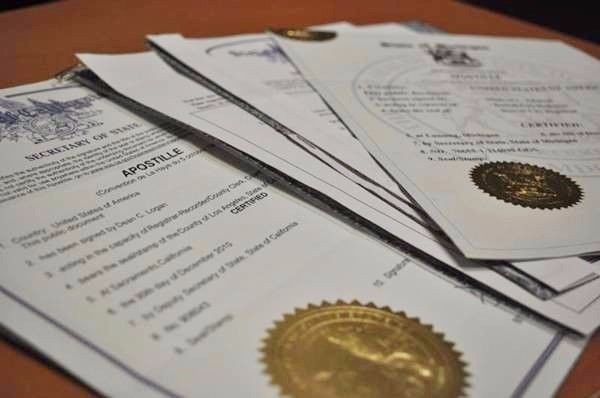(Part 1)
This article, which will be divided into two sections, will address a frequent issue among our clients: the Apostille. The primary objective of this certification, which was established by the Hague Convention of 1961, is to verify the signature of a source document (e.g., certificates, diplomas, etc.). The Apostille is usually affixed to the document in order to ensure its acceptance in different countries.
It is important to mention that the apostille must always be processed in the country where the document to be validated was issued, and it will remain valid as long as the receiving state is a member of the Hague Convention.
To access the list of member countries of this Convention, please click on the following link: https://www.hcch.net/en/instruments/conventions/status-table/?cid=41
If the country of presentation of your document is not included in this list, you will be required to process an international legalization in lieu of an Apostille.
Where is the apostille processed in Argentina, and what kind of support can Estudio NSG offer?
The Apostille is exclusively issued electronically and can be processed through the website of the Argentine Chancellery, the Civil Law Notaries Association of the City of Buenos Aires, or Civil Law Notaries associations of other provinces.
The processing delay through the Chancery is typically 30 working days, while the delay through the Civil Law Associations is typically shorter. For instance, the Apostille is processed by the Civil Law Notaries Association of the City of Buenos Aires within a 10-day timeframe. Nevertheless, the processing fees of both entities are markedly distinct.
It is also crucial to highlight that, in order to apostille civil registration certificates issued in the Autonomous City of Buenos Aires, you must first obtain them from the GEDO system of the GCBA, as scanned instruments are not accepted.
Finally, as we always inform to our clients, it is imperative to process the Apostille prior to any translation, as its content must be incorporated into the final document. Estudio NSG provides the Argentine Apostille processing service to aid you in the initial phase of this paperwork. Moreover, we can also download Civil Registry documents for this purpose in the case of the Autonomous City of Buenos Aires.
What occurs if you are a foreign national who forgot to apostille your document in your country of origin? What is the service that Estudio NSG offers?
If this is the case, you will be required to return the document to the country of issuance and include the apostille there. After this process is complete, you may submit the apostilled document directly to Estudio NSG office via courier. This will enable us to commence the translation and legalization procedure immediately. We can even work with digitalized copies of the source document while the Apostille is processed.
Afterward, we can arrange a convenient time and date for pickup.
If your document has already been apostilled, we can start the certified translation process. This will be the focus of the second part.
You may get in touch with us by the following:
Email: info@estudionsg.com
WhatsApp: +54 9 11 3829-4686
Signal: @EstudioNSG.01



